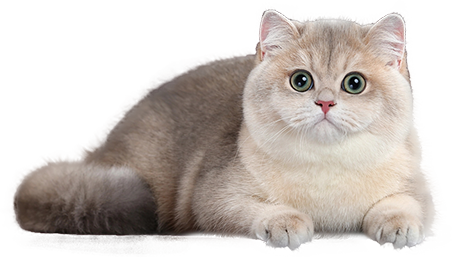Why Your Feline Friend Loves Chicken in Their Diet
2024/12/21
Why Your Feline Friend Loves Chicken in Their Diet
Table of Contents
- 1. Introduction: The Appeal of Chicken for Cats
- 2. Nutritional Benefits of Chicken in Cat Diets
- 3. Flavor Preference: Why Cats Love Chicken
- 4. Chicken and Digestive Health in Cats
- 5. Homemade Chicken Recipes for Your Cat
- 6. Commercial Cat Foods: Choosing the Right Chicken Products
- 7. Allergies and Alternatives: What to Consider
- 8. Conclusion: The Role of Chicken in Your Cat's Diet
- 9. FAQs about Chicken in Cat Diets
1. Introduction: The Appeal of Chicken for Cats
The diet of our beloved felines is often a topic of discussion among pet owners. One food that consistently stands out is chicken for cat food. Known for its palatable flavor and abundant nutritional benefits, chicken has become a staple in many cat diets. But what is it about this poultry that makes it so appealing to our feline friends?
In this article, we will dive deep into the world of chicken as a dietary choice for cats. We will explore its nutritional advantages, the reasons behind its popular flavor, and practical tips for incorporating chicken into your cat’s diet to ensure they remain healthy and happy.
2. Nutritional Benefits of Chicken in Cat Diets
Chicken is a protein-rich food that offers a variety of essential nutrients vital for a cat's health. Here’s a closer look at the nutritional benefits chicken provides:
High-Quality Protein Source
Cats are obligate carnivores, meaning their bodies are designed to thrive on animal-based protein. Chicken is an excellent source of high-quality protein, which is crucial for muscle development, energy production, and overall health.
Essential Amino Acids
Chicken is not only rich in protein but also contains essential amino acids, such as taurine. These amino acids are necessary for heart health, vision, and proper digestion. A diet deficient in taurine can lead to severe health issues, making chicken a vital component in maintaining a balanced diet.
Vitamins and Minerals
Chicken is loaded with important vitamins and minerals, including B vitamins (such as B6 and B12) that aid in energy metabolism and brain function. Additionally, chicken contains minerals like phosphorus and selenium, which contribute to bone health and immune function.
Low in Carbohydrates
Unlike many commercial cat foods that contain excessive carbohydrates, chicken provides a low-carb option that aligns with a cat's natural dietary needs. A diet low in carbohydrates can help prevent obesity and diabetes, common issues in domestic cats.
3. Flavor Preference: Why Cats Love Chicken
One of the most compelling reasons cat owners often choose chicken for their pets is its flavor. The taste and texture of chicken can be incredibly appealing to cats. Here’s why:
Natural Instincts and Preferences
Cats have a natural instinct to hunt, and poultry like chicken mimics the type of prey they would encounter in the wild. This instinctual attraction can make chicken a more appealing choice over other protein sources.
Appealing Aroma
Cats have a heightened sense of smell, and the aroma of cooked chicken is irresistible to them. The savory scent stimulates their appetite and encourages them to eat.
Texture and Moisture
The texture of chicken, whether it's shredded, diced, or in broth form, can be very appealing to cats. Additionally, moisture content in cooked chicken can help keep your cat hydrated, especially if they are less inclined to drink water.
4. Chicken and Digestive Health in Cats
A significant aspect of a cat's diet is its impact on digestive health. Chicken can play a crucial role in ensuring that your feline friend maintains a healthy digestive system.
Easy to Digest
Chicken is known for being easily digestible, making it suitable for cats of all ages, including kittens and seniors. This is particularly important for pets with sensitive stomachs or those recovering from illness.
Probiotics and Digestive Enzymes
Adding chicken, especially when prepared as a homemade meal, can introduce beneficial probiotics and digestive enzymes that promote a healthy gut flora. This can enhance nutrient absorption and support overall digestive health.
Natural Hydration
When served in its natural juices or as part of a broth, chicken can promote hydration in your cat’s diet. Adequate hydration is essential for preventing urinary tract issues, a common problem in cats.
5. Homemade Chicken Recipes for Your Cat
Incorporating chicken into your cat's diet doesn’t have to come from store-bought foods alone. Here are some simple homemade chicken recipes that are both nutritious and delicious for your feline friend:
Simple Boiled Chicken
Boil skinless chicken breasts in water until fully cooked. Shred the meat and serve it to your cat. This recipe is straightforward and provides a lean protein source.
Chicken and Pumpkin Mash
Combine cooked, shredded chicken with pureed pumpkin. The fiber in pumpkin aids digestion, while chicken provides protein. This dish is ideal for cats needing extra digestive support.
Chicken Broth Delight
Simmer chicken bones in water for several hours to create a flavorful broth. Allow it to cool, strain the bones, and serve the broth alone or mixed with shredded chicken. This recipe is hydrating and nutritious.
6. Commercial Cat Foods: Choosing the Right Chicken Products
When it comes to commercial cat foods, not all products are created equal. Understanding how to choose high-quality chicken-based foods is essential for your cat's health.
Reading Labels
Always read the ingredient list on cat food labels. Look for chicken or chicken meal as the primary ingredient. Avoid products with vague terms like "meat by-products," which can indicate lower quality ingredients.
Grain-Free Options
Opt for grain-free formulas that focus on protein-rich ingredients. Cats do not require grains in their diet, and grain-free options can help maintain a healthy weight and prevent allergies.
Quality Brands
Research reputable brands known for their commitment to quality and transparency. Look for brands that conduct feeding trials and provide clear information on sourcing and ingredient quality.
7. Allergies and Alternatives: What to Consider
While chicken is a popular choice, some cats may develop allergies or sensitivities to poultry. Here’s what to consider:
Recognizing Allergies
Symptoms of food allergies can include itching, gastrointestinal upset, and changes in behavior. If you suspect your cat has an allergy, consult your veterinarian for appropriate testing and dietary recommendations.
Alternative Proteins
If your cat cannot tolerate chicken, consider alternatives like turkey, duck, or fish. Each of these protein sources can provide essential nutrients while catering to your cat's flavor preferences.
Consult Your Veterinarian
When making dietary changes, especially if allergies are a concern, always consult your veterinarian. They can provide guidance on the best dietary practices tailored to your cat's specific needs.
8. Conclusion: The Role of Chicken in Your Cat's Diet
Incorporating chicken into your feline friend’s diet can provide numerous benefits, from high-quality protein to essential nutrients that support overall health. Its irresistible flavor makes it a favorite among cats, while its digestibility ensures that your pet can enjoy their meals without discomfort.
By being mindful of the types of chicken products you choose, whether homemade or commercial, you can create a well-rounded and satisfying diet for your cat. Remember to monitor their health and consult with your veterinarian to make informed decisions about their dietary needs.
9. FAQs about Chicken in Cat Diets
1. Can I feed my cat raw chicken?
Feeding raw chicken is a topic of debate among pet owners. While some advocate for raw diets, it's essential to ensure that the chicken is sourced from a reliable supplier to avoid bacterial contamination. Always consult your veterinarian before making such changes.
2. How much chicken can I give my cat?
The amount of chicken you can provide depends on your cat’s size, age, and activity level. As a general guideline, treats like chicken should not exceed 10% of their daily caloric intake.
3. What if my cat doesn’t like chicken?
If your cat is not fond of chicken, try introducing other protein sources like turkey or fish. You can also mix the chicken with their regular food to make it more appealing.
4. Are there any risks associated with feeding chicken to cats?
While chicken is generally safe, it's crucial to avoid seasoning, spices, or sauces that may harm your cat. Always ensure chicken is cooked properly and never serve bones, as they can pose a choking hazard.
5. How often can I give my cat chicken?
Chicken can be offered regularly as part of a balanced diet. However, it's essential to maintain variety by alternating protein sources to ensure your cat receives all necessary nutrients.
Key words:
Contact Us
Address:
No. 22, Jingxing Road, Economic and Technological Development Zone, Nantong, Jiangsu Province.
E-mail:
panghuiqiang@metzpet.com
Contact Phone:
+86-18862996617














